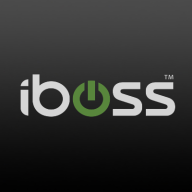


Symantec Proxy and Axis Security compete in the cybersecurity market, offering network security solutions. Symantec Proxy has a slight advantage in data protection and filtering capabilities, while Axis Security aligns better with modern security needs through its innovative cloud-based access solutions.
Features: Symantec Proxy offers robust web security with URL filtering, malware protection, and data loss prevention. Axis Security provides secure access using zero trust network access (ZTNA) technology and micro-segmentation, enhancing dynamic user access management. Axis's focus on decentralized cloud-native solutions supports seamless remote access.
Room for Improvement: Symantec Proxy could improve its ease of deployment, cloud integration, and scalability options. Axis Security may enhance its data protection features, increase its integration with third-party services, and expand its on-premises support for hybrid environments.
Ease of Deployment and Customer Service: Symantec Proxy is more cumbersome to deploy due to on-premises hardware requirements, necessitating significant IT resources. Axis Security leverages a SaaS model with simpler cloud-based deployment and high flexibility, minimizing complexity. Axis often receives praise for responsive and proactive customer support, while Symantec might need more direct technical intervention.
Pricing and ROI: Symantec Proxy has high upfront costs due to hardware investments and maintenance, leading to slower ROI. In contrast, Axis Security's subscription-based model is more cost-effective and scalable, offering quicker ROI by adjusting expenses with scaling needs. While Axis's initial costs are lower, Symantec might incur hidden expenses due to infrastructure demands.



iboss offers a comprehensive security platform designed for diverse use cases such as web filtering, data loss protection, corporate proxy services, and URL filtering.
iboss integrates advanced features to address dynamic security needs, leveraging its strength in SASE, ZTNA, AI initiatives, and cloud integration, while ensuring seamless operations for remote work. It excels in historical forensics, malware protection, and flexible cloud deployments. Users benefit from comprehensive traffic scanning, robust malware detection, and PaaS capabilities that reduce hardware management. An intuitive admin console ensures efficient management with content filtering and low false positives. SSL decryption enhances security, while DLP protects data in AI conversations. Deployment is rapid and scalable, allowing effortless integration with emerging technologies.
What features does iboss offer?
What benefits and ROI should users consider?
iboss finds significant application in sectors such as education, where web filtering for K-12 is crucial, and in corporate environments requiring robust proxy services and URL filtering for network security. Its adaptability is essential in scenarios demanding flexible, decentralized security frameworks, particularly for remote work setups.
Axis Security is a prominent enterprise security solution, specializing in Zero Trust Network Access (ZTNA). The Axis Security Application Access Cloud platform is designed to secure remote access to applications and services hosted in the cloud or on-premises. It aims to simplify and enhance access controls while maintaining strong security measures.
Axis Security's platform stands out by offering a comprehensive, cloud-native solution designed to enable secure access to private applications. Their Application Access Cloud simplifies network security, eliminating the need for traditional VPNs, and provides a more secure and efficient way to connect users to private applications, regardless of where the users or the applications are located.
Axis Security users on PeerSpot have highlighted the ease of deployment and the non-intrusive nature of Axis Security's solution as major advantages. One IT Director noted, "The implementation was straightforward and didn’t disrupt our existing operations, which was a major plus." Another user, a Security Manager, praised the platform's robust security features, saying, "Axis Security has significantly enhanced our ability to control and monitor application access, giving us peace of mind in our security operations."
Axis Security follows the principles of zero-trust architecture, which means it treats every access request as potentially untrusted, regardless of the user's location or network. It applies rigorous authentication and authorization controls to ensure only authorized users can access specific applications and resources. Axis Security enables secure remote access to applications and services without requiring a VPN (Virtual Private Network). It establishes a secure connection between users and applications, protecting against potential threats and reducing the attack surface.
With Axis Security, organizations can granularly control user access to specific applications or services. This ensures that users only have access to the resources they need, reducing the risk of unauthorized access or data breaches. The platform simplifies access management by providing a centralized control point for managing user access policies. IT administrators can define access rules based on user roles, groups, or other criteria, making it easier to enforce security policies and maintain compliance.
Axis Security continuously monitors user activity and application access, detecting potential threats and anomalies in real-time. It provides insights into user behavior, allowing organizations to identify and mitigate security risks promptly.
Axis Security is built on a cloud-native architecture, allowing it to scale and adapt to dynamic cloud environments. It can seamlessly integrate with various cloud services and supports hybrid deployments, making it suitable for organizations with diverse infrastructure setups.
Axis Security aims to provide secure and simplified remote access to applications while adhering to the principles of zero trust. By implementing granular access controls and continuous monitoring, it helps organizations protect their critical resources and reduce the risk of unauthorized access or data breaches.
Symantec Proxy is designed to provide web security, web access control, and secure web gateway functionalities for organizations. It helps protect against web-based threats, enforce web usage policies, and provide secure access to internet resources.
Symantec Proxy Benefits:
Symantec Proxy Features:
Reviews from Real Users
Below are some reviews and helpful feedback written by Symantec Proxy users.
PeerSpot user, Consultant at a financial services firm, says that Symantec Proxy "...enables us to manage bandwidth for users based on their privilege levels. For example, if a user wants to use a certain application or resource, we can provide access based on their privileges."
PeerSpot user, General Manager & founder at a engineering company, writes that Symantec Proxy has "A complex deployment, no proper user reporting, and a proxy component that works."
Muhammad Salahuddin, Unit Head - Network and Security Solutions at FPM Solutions, states that Symantec Proxy has "Good URL filtering but is expensive and doesn't have good technical support services."
We monitor all Secure Web Gateways (SWG) reviews to prevent fraudulent reviews and keep review quality high. We do not post reviews by company employees or direct competitors. We validate each review for authenticity via cross-reference with LinkedIn, and personal follow-up with the reviewer when necessary.